The Envelop System of Foundation Budgets
When I first met my mother-in-law, I was totally fascinated by the organization she used to allocate family finances, the system we fondly refer to as the "envelop system". My mother-in-law would take an amount of money each week, break it down into smaller portions, and put each portion in its own coin-sized manila envelop which was kept handy throughout the week.
For example, if she budgeted $100 for food shopping throughout the week, five $20-bills would be put into the grocery envelop. When the money was gone, she either shifted cash from another envelop to buy something or went without until next payday.
In my mind, this is an apt analogy for what is happening in the Foundation Budget nightmare currently in place in our Commonwealth. The Commonwealth assigns a set dollar amount of aid for each community based on particular spending allocations, the chunk of money arrives at the municipality and when it doesn't fully cover one spending category, the schools shift the funding from one category to another that has been shorted.
However, one of the biggest issues with the Commonwealth's envelop system is that the money going into each envelop is the same amount as was used in 1993, over 25 years ago. Imagine trying to run your own household using the same amounts of cash as you comfortably spent in 1993.

Lowell Superintendents' Forum, 4/22/2019
In Lowell, we heard last Monday about a shortfall of nearly 500 classroom teachers each year. Big underfunded and under-calculated items in the Foundation Budget are surely contributing factors to this. If a district such as Lowell has huge differences between the Commonwealth's foundation budget determinations for school spending and the amount spent is more than what has been put aside, there are two choices.
Applying the "envelop system" demands a municipality either a) add money from the municipal coffers to make up that difference or b) shift funding from one category to another.
Of course these differences between state funding and actual spending are quite common - not to mention quite large - when the basis for the Foundation Budget calculations have not be updated in about 25 years. If state funding is based in the 1990s but actual expenses reflect the reality of 2019, it follows logically that there will be a huge conflict between state funding and reality. The differences are exacerbated when a municipality, like Lowell, Brockton, Springfield or Worcester, cannot contribute beyond what has been calculated in the Foundation Budget numbers, something a more affluent city of town might be able to do. It follows, then that some difficult educational budgeting choices must be made.
A gateway city, like Lowell, has nearly zero percent chance of not feeling some excruciating budget pain which brings us up to the shortfall of 500 classroom teachers. It is indeed painful to Lowell and to our children.
Four major areas - think of them as "envelopes" - need Foundation Budget reform: English Language Learners, Special Education (not including the Circuit Breaker), Health Insurance and Low Income. All of these funding categories are based on amounts that were set in 1993 which means that when one looks at what the Commonwealth funds and what the expense reality in 2019 is, there are huge variances.

Let's consider the budget "envelops" for a couple of these categories. The Foundation Budget calculates Special Education spending at $16.7 million, but the actual cost of Special Education in Lowell is $31.1 million. That's a difference of $14.4 million which has to come out of one of the other budget envelopes. Health Insurance as budgeted through the Foundation Budget calculations is figured at $17.3 million, but the actual insurance costs, even after switching to a cost-effective plan like the GIC, is $33.1 million. Surely no one in Massachusetts is expecting to pay the same insurance costs as they did in 1993, so is it any wonder that the Foundation Fund amount is so out of whack?
As a taxpayer, a voter, and as a former educator, I am shocked when local politicians claim there's no money to correct this. I think it is more likely there is no courage because that is what it will take to face the reality of underfunding schools. Revenues to fund schools, as well as transportation and infrastructure, in our Commonwealth are essential.
The envelop is empty and there is no time to waste.








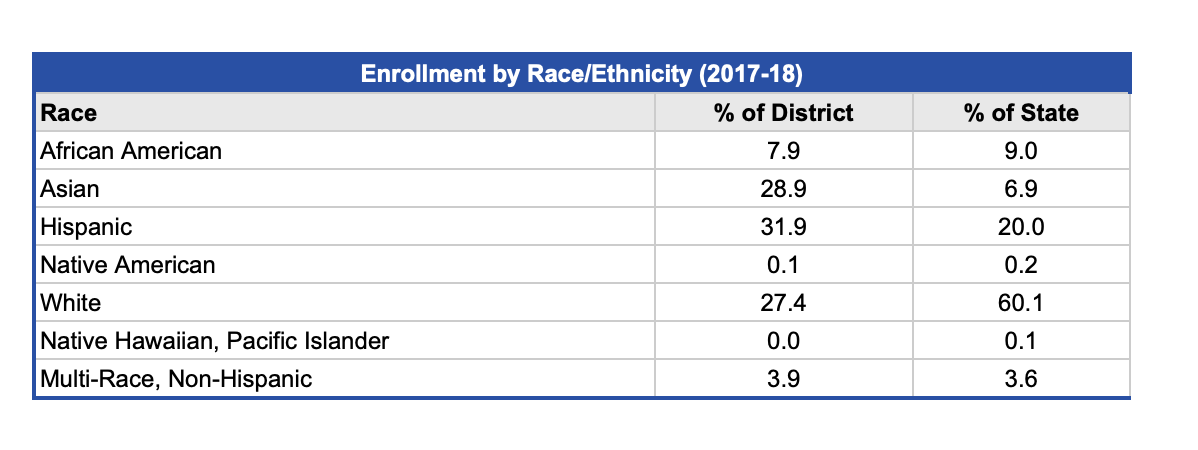
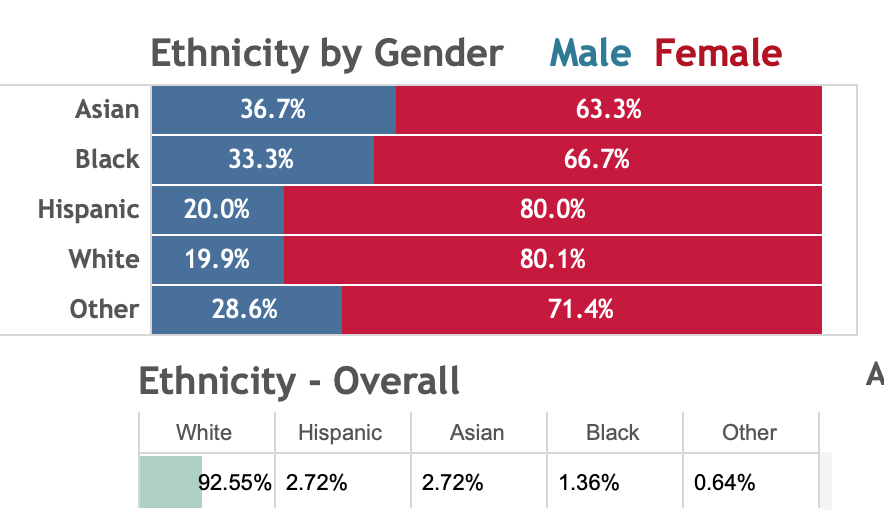
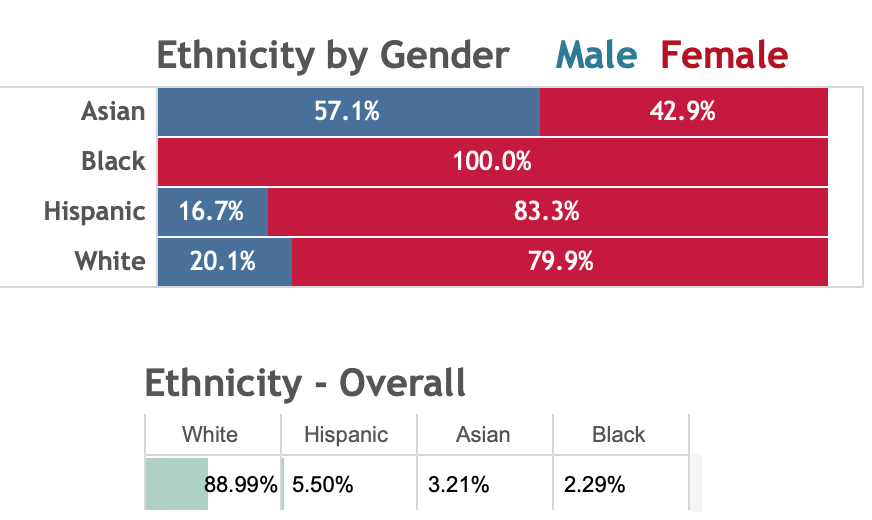
 Don't sit tomorrow's election out. Go vote.Think your vote "doesn't matter". I disagree. Recently in the MA3 Congressional District Primary,
Don't sit tomorrow's election out. Go vote.Think your vote "doesn't matter". I disagree. Recently in the MA3 Congressional District Primary,  Sometimes I wonder if we've lost our collective minds when it comes to early childhood education. This morning, I found this well-written article, from January 2016's Atlantic: "
Sometimes I wonder if we've lost our collective minds when it comes to early childhood education. This morning, I found this well-written article, from January 2016's Atlantic: " Our first grandchild arrived in August, and as many grandparents come to understand, things have changed since we raised our own children. Babies don't sleep with crib bumpers, or on their tummies. Children don't wear winter coats in car seats. I most definitely have zero applicable knowledge when it comes to infants. Times have changed, research has changed, thinking has changed.My wheelhouse, though, is education. I wonder - often as it turns out - if my own thinking as a teacher is outdated. I was reminded of this when a colleague shared the school district's current Early Childhood (PreK) progress report with me - which was over 10 pages long. These 3- and 4-year-olds have been "in school" barely 5 weeks and already their teachers are tasked with assessing their progress.Progress in what, exactly? When one is 3- or 4-years old, shouldn't the ultimate goal be to learn to love learning? To get along with others and take turns? Socialize? A 10-page checklist of skills - by category - seems ridiculous for a little one who has only been on this planet for less than 5 trips around the sun.It did make me curious: what exactly is being asked of young children, so I did some browsing through Boston Public School's Early Childhood page. Check out the "robust questions" intended to spark conversation with 3- or 4-year olds in Centers found in the
Our first grandchild arrived in August, and as many grandparents come to understand, things have changed since we raised our own children. Babies don't sleep with crib bumpers, or on their tummies. Children don't wear winter coats in car seats. I most definitely have zero applicable knowledge when it comes to infants. Times have changed, research has changed, thinking has changed.My wheelhouse, though, is education. I wonder - often as it turns out - if my own thinking as a teacher is outdated. I was reminded of this when a colleague shared the school district's current Early Childhood (PreK) progress report with me - which was over 10 pages long. These 3- and 4-year-olds have been "in school" barely 5 weeks and already their teachers are tasked with assessing their progress.Progress in what, exactly? When one is 3- or 4-years old, shouldn't the ultimate goal be to learn to love learning? To get along with others and take turns? Socialize? A 10-page checklist of skills - by category - seems ridiculous for a little one who has only been on this planet for less than 5 trips around the sun.It did make me curious: what exactly is being asked of young children, so I did some browsing through Boston Public School's Early Childhood page. Check out the "robust questions" intended to spark conversation with 3- or 4-year olds in Centers found in the 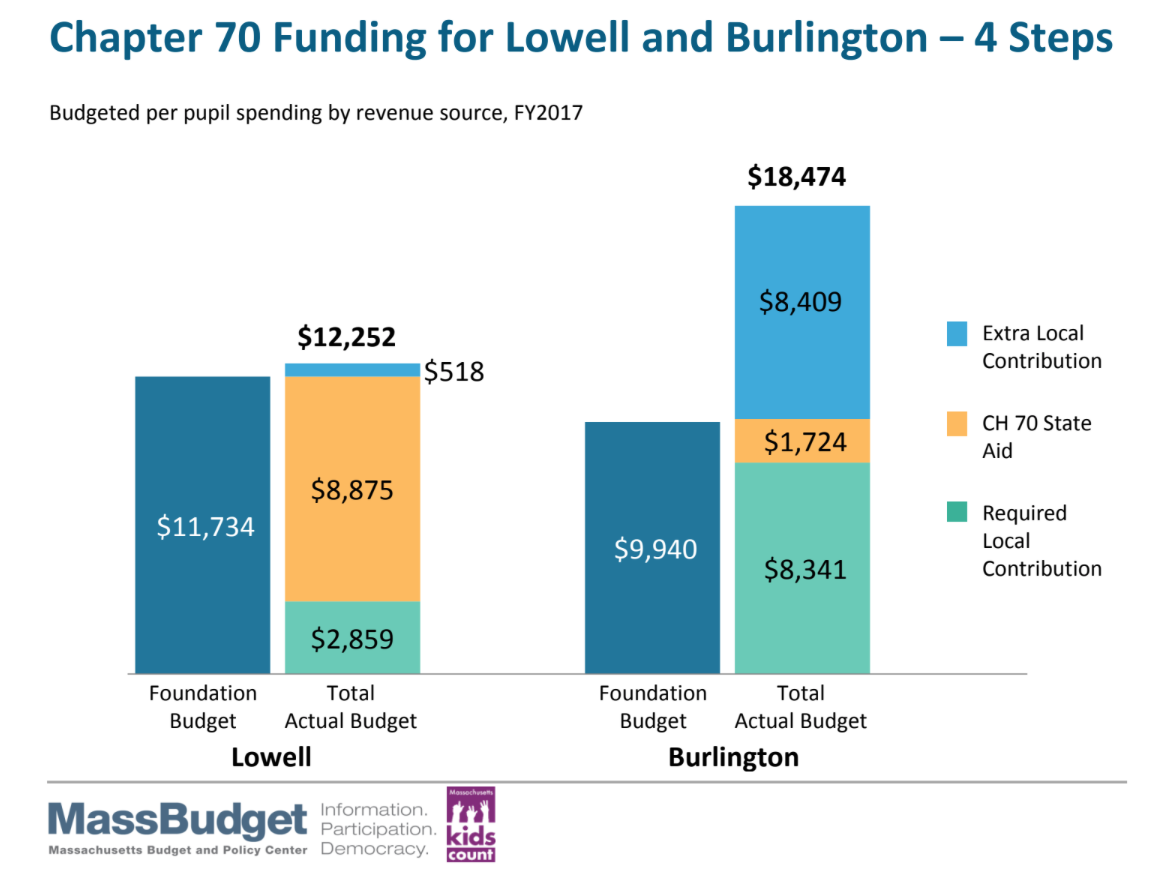 About two weeks ago, the Massachusetts Legislature failed once again to update school funding formulae known as the "Foundation". In my opinion, this is not only a huge disappointment, it is a disservice to students, families, and public schools in 351 cities and towns across Massachusetts.Here in Lowell, the erosion of school services and supports can be traced in the budget cuts that have been necessary over the last nearly 20 years. In the late 1990s, when an elementary class size reached 25, it was common practice to assign a paraprofessional to that classroom, which allowed for more focused and individualized attention to students. In 2015, my retirement year, my grade level of 100 students and 4 classroom teachers shared 1 paraprofessional.In the 1990s and early 2000s, elementary school staff included not only a library aide, but a certified Library Media Specialist. The library was a space where students not only learned research skills, but were exposed to wonderfully diverse literature and media curated by the Library Media staff. By the mid-2000s, all but one Library Media specialist was cut from the Lowell Public Schools and school libraries were maintained by Library Media aides. This year, 2018-19, the school budget has cut all library staff in Grades Kindergarten through Grade 8 essentially closing the libraries to any students below Grade 9.These are but two examples of service cuts in Lowell. There have been many others. Teachers in Lowell spend inordinate amounts of personal money (in my own case, I spent on average of $1,000 each year and some years much more) to supply classrooms. Social workers, Speech and Language therapists, OT, PT, Special Education.... all carry larger-than-reasonable caseloads.Have municipalities like Burlington or Wellesley cut K-8 library staff and access to school libraries? Of course not. Wealthier communities make up the shortfalls in Foundation funding from their property tax base and a community that is able to afford to allocate more funds toward schools. Does that seem equitable to anyone? (read WBUR's commentary
About two weeks ago, the Massachusetts Legislature failed once again to update school funding formulae known as the "Foundation". In my opinion, this is not only a huge disappointment, it is a disservice to students, families, and public schools in 351 cities and towns across Massachusetts.Here in Lowell, the erosion of school services and supports can be traced in the budget cuts that have been necessary over the last nearly 20 years. In the late 1990s, when an elementary class size reached 25, it was common practice to assign a paraprofessional to that classroom, which allowed for more focused and individualized attention to students. In 2015, my retirement year, my grade level of 100 students and 4 classroom teachers shared 1 paraprofessional.In the 1990s and early 2000s, elementary school staff included not only a library aide, but a certified Library Media Specialist. The library was a space where students not only learned research skills, but were exposed to wonderfully diverse literature and media curated by the Library Media staff. By the mid-2000s, all but one Library Media specialist was cut from the Lowell Public Schools and school libraries were maintained by Library Media aides. This year, 2018-19, the school budget has cut all library staff in Grades Kindergarten through Grade 8 essentially closing the libraries to any students below Grade 9.These are but two examples of service cuts in Lowell. There have been many others. Teachers in Lowell spend inordinate amounts of personal money (in my own case, I spent on average of $1,000 each year and some years much more) to supply classrooms. Social workers, Speech and Language therapists, OT, PT, Special Education.... all carry larger-than-reasonable caseloads.Have municipalities like Burlington or Wellesley cut K-8 library staff and access to school libraries? Of course not. Wealthier communities make up the shortfalls in Foundation funding from their property tax base and a community that is able to afford to allocate more funds toward schools. Does that seem equitable to anyone? (read WBUR's commentary  We are about a week beyond the Foundation Budget Review Commission (FBRC) disappointment. Last evening, as I listened in to a conference call sponsored by Mass Education Justice Alliance (MEJA), this question was posed:
We are about a week beyond the Foundation Budget Review Commission (FBRC) disappointment. Last evening, as I listened in to a conference call sponsored by Mass Education Justice Alliance (MEJA), this question was posed:
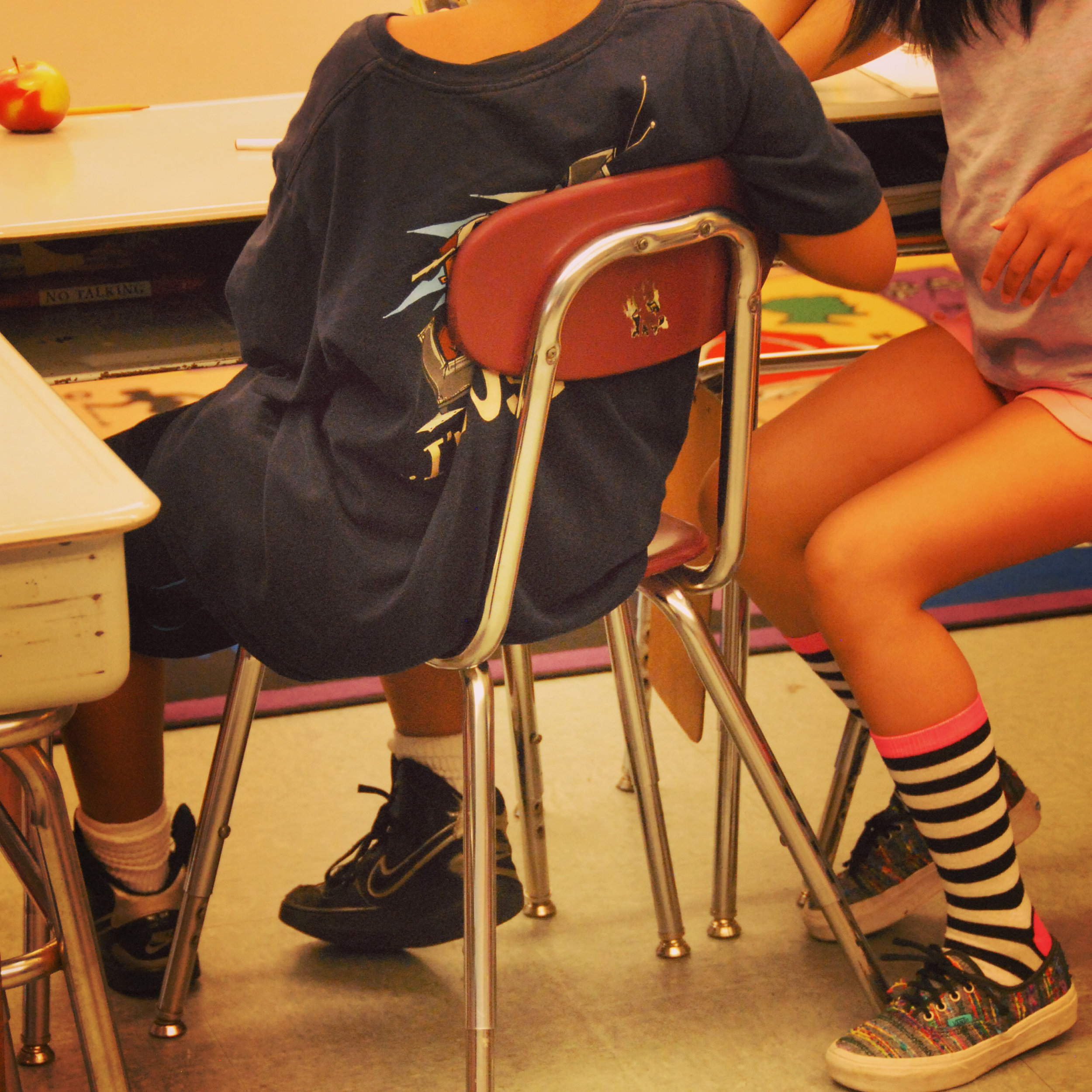 For 30 years, I was a teacher in both private and public elementary schools. I certainly was not a perfect teacher, and I made more than my share of missteps, especially in interactions with students.Experience can be an exacting teacher, however. One of the most important and useful lessons I learned was that for empathetic practitioners, there is no such thing as "zero tolerance". Despite one's insistence that a rule be followed without exceptions, the reality is simply the opposite. In a world of right-or-wrong, black-or-white, there is always a gray space.Take a school's zero tolerance for wearing caps in school as an example. On the surface, such a policy seems simple enough particularly for those of us who were brought up in the generation of "men do not wear caps inside." I share with you an anecdote from my time as an elementary teacher.One morning, a student of mine walked into my third grade classroom just on the cusp of the tardy bell. His head was down, he hadn't gone to his locker, he made zero eye contact with anyone and... he had his baseball cap firmly on his head. This student was a leader, well-liked and respected by his peers and, even at his most challenging, liked by his teachers. When I asked him to take off his cap, as was the rule, he simply looked down and shook his head defiantly.As I was about to escalate this conversation, I was saved from being a jerk by the school's social worker who had cajoled the whole cap story from this child. For some reason, this student's father had taken to giving the child an at-home hair cut, leaving tufts of his hair randomly interspersed between patches of skin. My student was mortified that his friends would see his new haircut and, as kids often do, taunt him mercilessly. So in a nod to the gray area, the zero-tolerance of caps in school was abandoned and the cap stayed on.I tell this story because there is an important take-away for every "zero tolerance" situation, including the one currently unfolding in our government. The consequence of this government's action however is far less benign than becoming an over-zealous enforcer of school rules.Zero tolerance should never become an absolute; there are far too many extenuating circumstances that can and should guide it. It is a lesson our government could and should apply as well.
For 30 years, I was a teacher in both private and public elementary schools. I certainly was not a perfect teacher, and I made more than my share of missteps, especially in interactions with students.Experience can be an exacting teacher, however. One of the most important and useful lessons I learned was that for empathetic practitioners, there is no such thing as "zero tolerance". Despite one's insistence that a rule be followed without exceptions, the reality is simply the opposite. In a world of right-or-wrong, black-or-white, there is always a gray space.Take a school's zero tolerance for wearing caps in school as an example. On the surface, such a policy seems simple enough particularly for those of us who were brought up in the generation of "men do not wear caps inside." I share with you an anecdote from my time as an elementary teacher.One morning, a student of mine walked into my third grade classroom just on the cusp of the tardy bell. His head was down, he hadn't gone to his locker, he made zero eye contact with anyone and... he had his baseball cap firmly on his head. This student was a leader, well-liked and respected by his peers and, even at his most challenging, liked by his teachers. When I asked him to take off his cap, as was the rule, he simply looked down and shook his head defiantly.As I was about to escalate this conversation, I was saved from being a jerk by the school's social worker who had cajoled the whole cap story from this child. For some reason, this student's father had taken to giving the child an at-home hair cut, leaving tufts of his hair randomly interspersed between patches of skin. My student was mortified that his friends would see his new haircut and, as kids often do, taunt him mercilessly. So in a nod to the gray area, the zero-tolerance of caps in school was abandoned and the cap stayed on.I tell this story because there is an important take-away for every "zero tolerance" situation, including the one currently unfolding in our government. The consequence of this government's action however is far less benign than becoming an over-zealous enforcer of school rules.Zero tolerance should never become an absolute; there are far too many extenuating circumstances that can and should guide it. It is a lesson our government could and should apply as well. If a picture is worth a 1000 words, this one, courtesy of
If a picture is worth a 1000 words, this one, courtesy of 
 I was in Boston this past weekend to be an ally for the student organizers of March for Our Lives, Boston.I feel as if my generation of Boomers has dropped the ball. Or maybe we never picked up the ball because when we were students in school, worry about an "active" shooter, one with an assault weapon, was not anything to be concerned with. The duck-under-desks drills were more about tornadoes or the Cold War threats from Russian Bombs.Since Newtown and Sandy Hook, it hasn't mattered how young the students, we practice
I was in Boston this past weekend to be an ally for the student organizers of March for Our Lives, Boston.I feel as if my generation of Boomers has dropped the ball. Or maybe we never picked up the ball because when we were students in school, worry about an "active" shooter, one with an assault weapon, was not anything to be concerned with. The duck-under-desks drills were more about tornadoes or the Cold War threats from Russian Bombs.Since Newtown and Sandy Hook, it hasn't mattered how young the students, we practice responses to active shooters several times a year. The protocols and program acronyms, such as the
responses to active shooters several times a year. The protocols and program acronyms, such as the  My goal in creating classroom space was to design a place that supported learning cooperatively, encouraged students to be independent, and was welcoming. Instead, I would start the school year thinking about which furniture should be near the hallway door and how 9-year olds might be able to move it in front of the door. Depending on the students' physical limitations, it was necessary to carve out space for hiding. Teachers made plans for another adult to watch over students in a safe meeting spot in case the worst possible situation presented itself. Teacher might not be with the students and might need to stay back in the classroom hiding with a child for whom running was made impossible by physical disability.
My goal in creating classroom space was to design a place that supported learning cooperatively, encouraged students to be independent, and was welcoming. Instead, I would start the school year thinking about which furniture should be near the hallway door and how 9-year olds might be able to move it in front of the door. Depending on the students' physical limitations, it was necessary to carve out space for hiding. Teachers made plans for another adult to watch over students in a safe meeting spot in case the worst possible situation presented itself. Teacher might not be with the students and might need to stay back in the classroom hiding with a child for whom running was made impossible by physical disability. I am abundantly aware of the ridiculous response to keeping students safe from an intruder carrying an assault weapon into a school building. The response in such situations might mean a lock down. It might mean running. It might mean creating a barricade by piling furniture at the egresses. If the shooter enters the classroom, we teach students to run around, scream, or throw items such as staplers and books in an attempt to distract the intruder.T
I am abundantly aware of the ridiculous response to keeping students safe from an intruder carrying an assault weapon into a school building. The response in such situations might mean a lock down. It might mean running. It might mean creating a barricade by piling furniture at the egresses. If the shooter enters the classroom, we teach students to run around, scream, or throw items such as staplers and books in an attempt to distract the intruder.T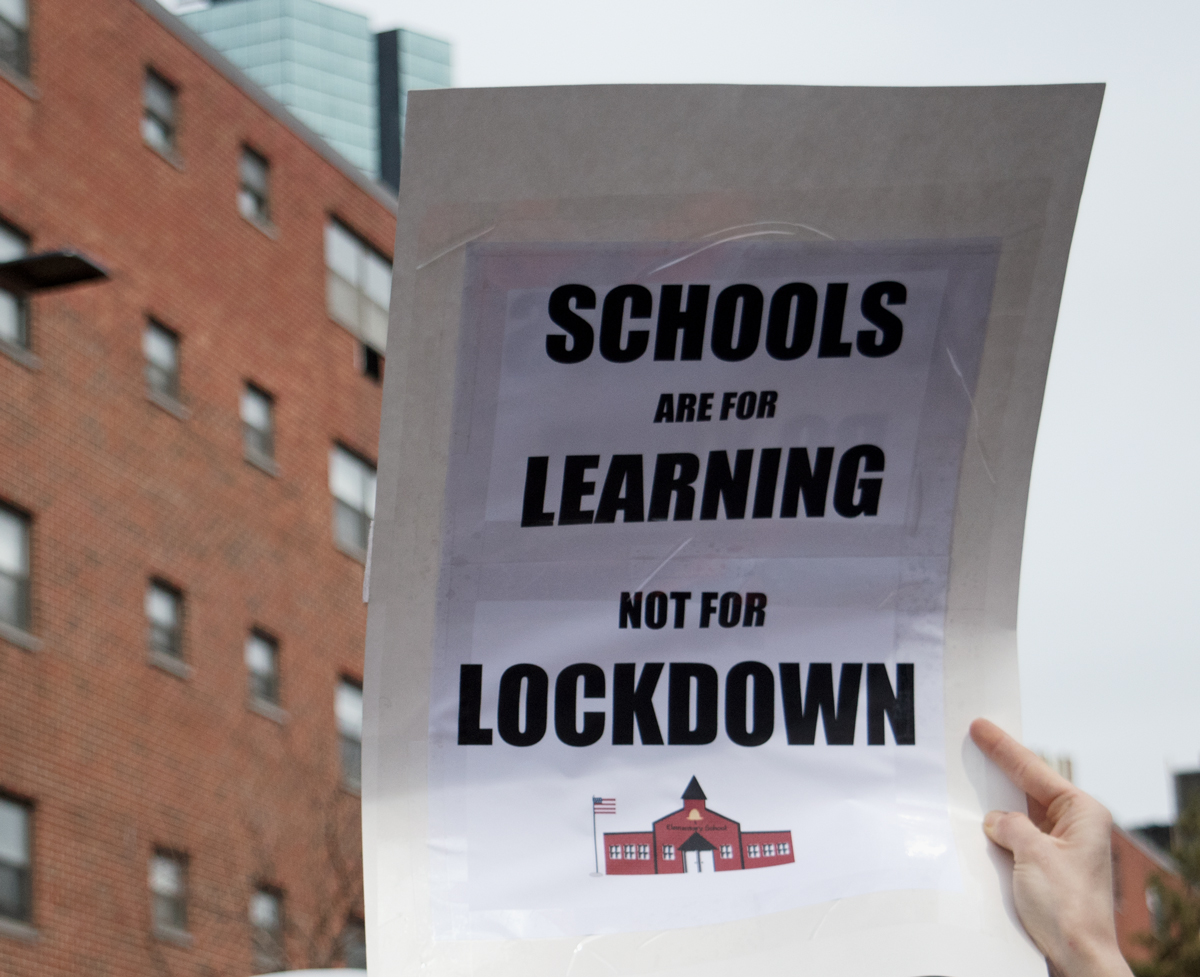 he students know that safety from an intruder armed with an assault weapon is not just an issue for schools. It can happen in nightclubs. It can happen in outdoor concerts. It can happen in churches. An assault rifle can p
he students know that safety from an intruder armed with an assault weapon is not just an issue for schools. It can happen in nightclubs. It can happen in outdoor concerts. It can happen in churches. An assault rifle can p I have yet to hear a cogent argument for allowing the general population to purchase an assault weapon. Assault weapons have no purpose in the hands of the general public. They kill and maim quickly whether one is sitting on a front step or in a park or at a desk in class.Listen to the kids.
I have yet to hear a cogent argument for allowing the general population to purchase an assault weapon. Assault weapons have no purpose in the hands of the general public. They kill and maim quickly whether one is sitting on a front step or in a park or at a desk in class.Listen to the kids.




 And here are the wishlists from the Summer participants
And here are the wishlists from the Summer participants




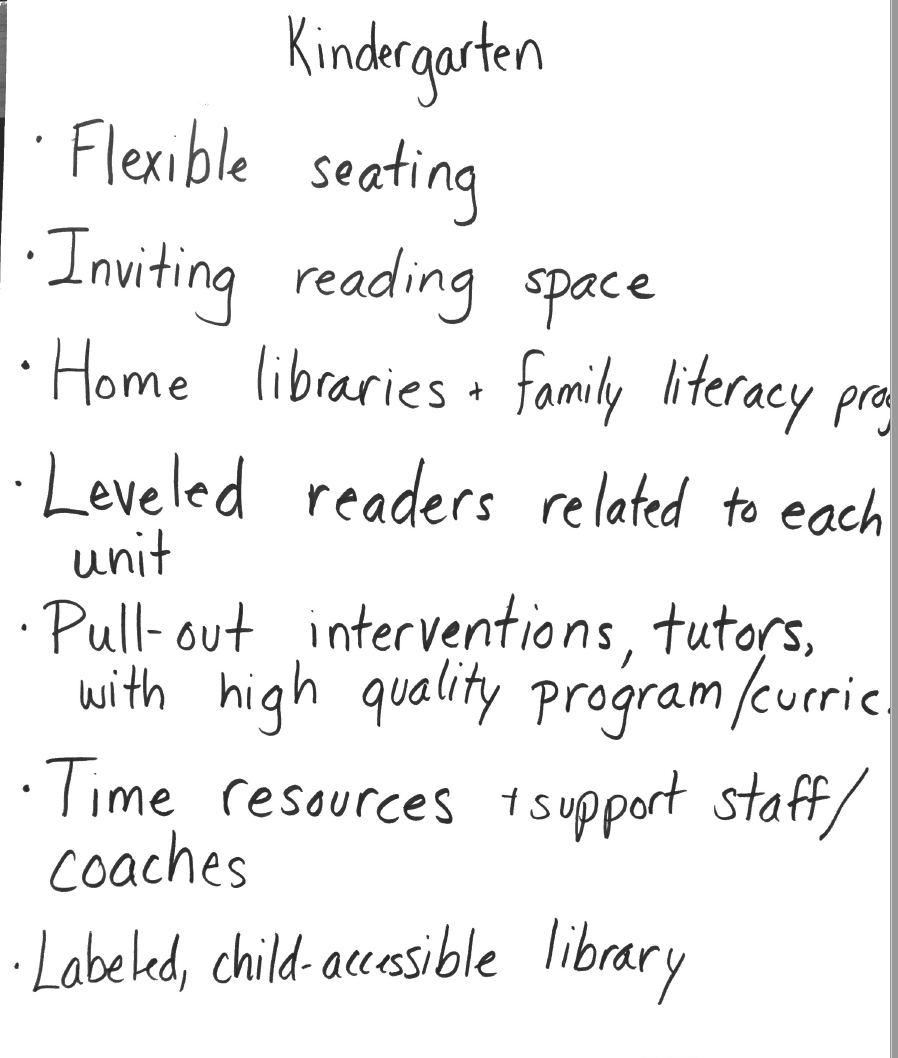
 Did you happen upon KQED's interview with San Francisco educator, Michael Essien, principal of MLK Middle School? If not,
Did you happen upon KQED's interview with San Francisco educator, Michael Essien, principal of MLK Middle School? If not,